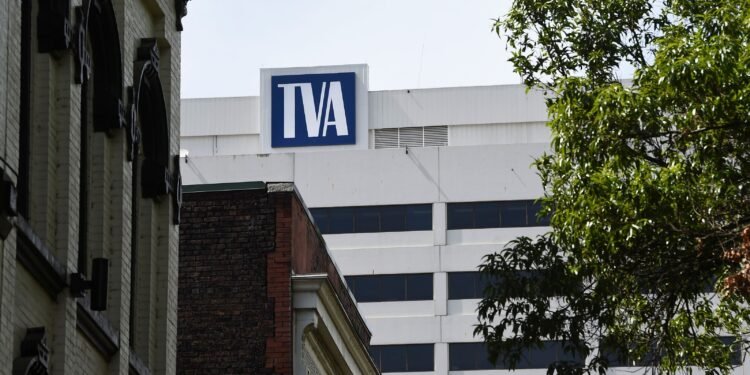Debate Arises Over TVA’s Transparency Amid Controversy on Cryptocurrency Grants
Overview
A lawsuit has been initiated by Melanie Faizer, a University of Tennessee at Knoxville professor and journalist, against the Tennessee Valley Authority (TVA), alleging violations of the Freedom of Information Act (FOIA). This legal action has spotlighted TVA’s handling of economic incentive grants for cryptocurrency companies, prompting discussions on the agency’s transparency practices.
Expert Perspectives
Representing Faizer, Paul McAdoo from the Reporters Committee for Freedom of the Press asserts that TVA’s behavior indicates a pattern of profound secrecy concerning financial transactions with entities like Bitdeer, which oversees a cryptocurrency mining operation in East Knoxville. McAdoo argues that the withholding of information hinders public understanding of how TVA attracts businesses and uses incentives funded by taxpayers.
Market Environment
The increased scrutiny surrounding TVA’s economic incentives coincides with the rise of cryptocurrency mining ventures in East Tennessee, attracted by affordable electricity and flexible zoning regulations. Despite their substantial electricity requirements, these operations face criticism for limited job creation. A probe by Knox News revealed that cryptocurrency mining enterprises, such as Bitdeer, can consume a significant share of local energy resources while offering scarce job opportunities.
In a report published in February 2023, Faizer shed light on Bitdeer’s operations, exposing the disparity between its substantial power consumption—amounting to 9.4% of all electricity from the Knoxville Utilities Board—and its employment of merely 30 workers. TVA halted the provision of incentives to cryptocurrency firms last year, citing marginal benefits to local economies.
Assessment of Impact
Beyond mere information accessibility, this lawsuit symbolizes a pivotal moment for public answerability. Following almost a year of appeals leading up to her legal action, Faizer underscores the significance of transparency in awarding federal incentives, especially in swiftly evolving domains like digital currencies. The verdict of this case could establish precedents for future FOIA requests and the public’s entitlement to knowledge about governmental decisions affecting local economies and the environment.
Furthermore, TVA has encountered a sequence of lawsuits related to FOIA applications, indicating broader concerns regarding transparency within the organization. The mounting backlog of FOIA requests, surpassing 200,000 in 2022 according to a report by the Government Accountability Office, exemplifies systemic hurdles in federal transparency.
Conclusion
With Faizer’s lawsuit scheduled for trial in November 2025, the implications transcend her investigations into Bitdeer’s operations. This case underscores the significance of transparency in federal institutions, particularly concerning incentives financed by taxpayers in the realm of cryptocurrencies. As interested parties observe closely, the outcome has the potential to shape public perceptions and the regulatory landscape around incentives for emerging technologies in the future.








